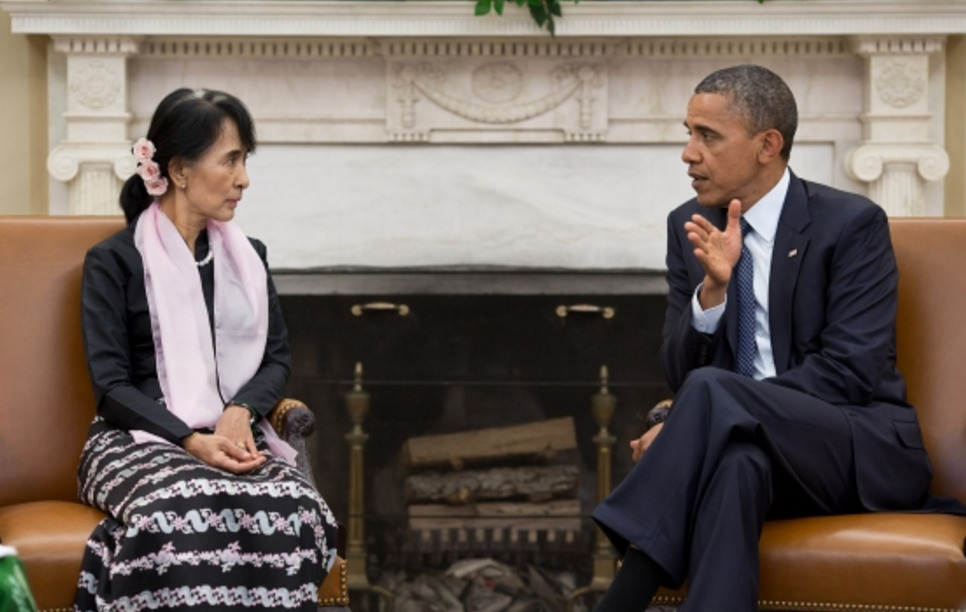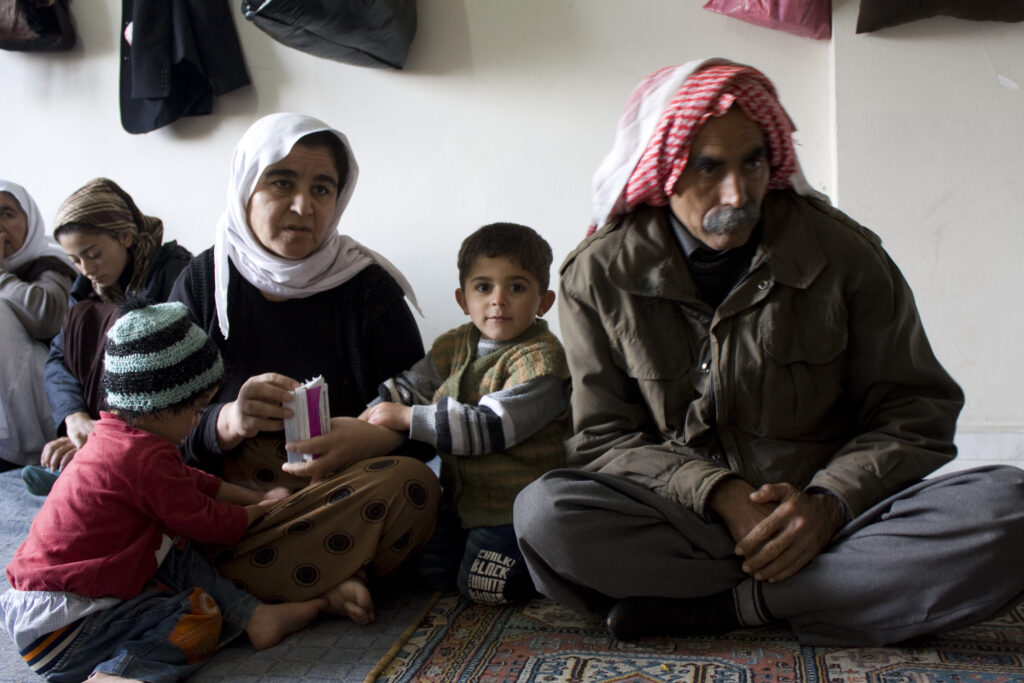This piece is the third of Glimpse’s “Regional Check-In Series.” To read about Latin America, click here. To read about the Caucasus and Central Asia, click here.

With a population of 600 million and a total GDP of $1.9 trillion, South East Asia is rapidly capitalizing on its potential to become a major economic power. While its economy is developing briskly and consistently – nearly 5% every year – its political development of has been rough and inconsistent. With a growing, educated middle class and greater access to information technologies, citizens are clamoring for more democratic liberties and a wider range of political rights. In 2015, several key states made important developments towards democracy.
Burma
From 1962, the military Junta has ruled Burma with an iron fist. However, in 2011, the country took unprecedented steps toward democratic reform: 1) releasing Aung San Suu Kyi, the longtime opposition leader of the National League for Democracy (NLD), 2) establishing a Commission on Human Rights and 3) relaxing censorship. Furthermore, in 2012, there was a by-election in which the NLD won 40 seats in the parliament. The country has attempted democratization in the past—namely in 1990 when it held multi-party elections that simply ended with the results annulled and a crackdown on the NLD. But developments in the past few months suggest the democratic changes beginning in 2011 are here to stay.
In January of 2015, the government opened formal talks with student representatives regarding an education bill after major (illegal) demonstrations. In a country that usually cracks down on protests, this is a positive sign of government accountability and toleration of freedom of assembly and association. Protests continued throughout the year by students, citizens and the press alike with little obstruction. The biggest development was the announcement of an election promising wide opposition party participation; held on November 8, the NLD achieved a landslide victory with 77% of the seats in parliament.
Burma is not a full-fledged democracy and the military still wields substantial power (25% of the seats of parliament are military appointments). However, they have promised to respect the decision of the election, and the NLD will choose the next president. The military’s motto is “disciplined democracy”, and while it seems like a contradiction, it is leading to unprecedented liberalization within the country.
Cambodia
Cambodia has been ruled since 1979 by the semi-authoritarian Cambodian People’s Party (CPP), led currently by President Hun Sen. A formerly Marxist-Leninist party, the CPP dropped its leftist affiliations in the early 1990s and adopted market economic reforms and supposed democratic restructuring. While the CPP has had regular elections since 1993, through intimidation, corruption and stringent regulation they have denied any opposition party a genuine chance at winning. However, in order to maintain legitimacy amidst rising unpopularity, the regime has recently embraced real democratic reform. The government held a 2013 election in which the opposing Cambodia National Rescue Party (CNRP), a democratic liberal reform party, came within four percentage points of winning. The CNRP gained 55 out of 123 seats in the National Assembly despite allegations of voter fraud.
On November 12, 2015, the government issued an arrest warrant for the CNRP leader, Sam Rainsy, for public defamation, and expelled him from the National Assembly. Largely seen as a political move, it came at a turbulent time; two opposition party politicians were assaulted in November outside the National Assembly. With the opposition facing greater persecution by the government, Rainsy in self-imposed exile abroad and negotiations stalled, it seems that Cambodia’s path forward is rocky—two steps forward, one step back.
Thailand
Thailand is a constitutional monarchy historically ruled by a military Junta. The country has repeatedly attempted democratization but has failed to make meaningful progress. The most recent military government, which came to power through a coup in 2014, has promised to put Thailand back on the path of democratization, mainly pressured by large-scale citizen activism and protests. But 2015 saw very little change; the constitutional drafting process failed, resulting in the inevitable prolonging of the military government. Thailand has had 19 constitutions in less than 100 hundred years, and while there is currently a project to get another constitution written by April 2016, the junta’s commitment to writing a lasting document is questionable.
Additionally, the military government has created a climate of fear, as major political figures near the King and dissenting officers in the army were arrested for dubious corruption charges. It suggests that the government’s commitment to the rule of law is secondary to maintaining political control. Perhaps the most important development was news that the 2016 elections would be delayed. Thailand technically became a democratic state in 1932, and despite this legacy, the military junta seems to be deliberately delaying democratization for its own aggrandizement.
Vietnam
Vietnam is a one-party-rule communist state and is also one of the fastest developing countries in South East Asia. Vietnam embraces the Chinese model, using economic growth to maintain their political grip on the country. While the government does have a strong hand in media, internet censorship largely exists in name only and outside information is widely available.
Dissidents recently received a higher profile in the country. Citizen journalists wielding smartphones are trying to break the government’s monopoly on the media by circulating reports regarding human rights violations on the internet. While the government is cracking down, criticism from NGOs and other governments is limiting their ability to respond and is allowing citizen journalism to proliferate. There is an active online community of dissidents, some of whom send their grievances to the government directly.
An NGO known as Bloc 8406, a coalition of many regional and local pro-democracy parties, serves as the main organization pushing for greater political freedom. Its very existence indicates that the roots of democratization are being laid in the country. The government has been harsh in its suppression of dissidents and independent journalists, but is unable to silence all the voices or prevent more from joining the movement. It is important to note that with relatively high levels of economic growth and relative satisfaction, dissidents and active opposition against one party rule are still a minority, making any major changes beyond a relaxing of laws on freedom of speech and press unlikely in the near future.
The Regional Outlook
Democracy and basic political freedoms have become globalized norms that states and their citizens in South East Asia cannot ignore. South East Asia has a long history of military and one-party rule, but the region’s governments face an increasing demand for fair representation and political rights from their citizenry. Greater economic prosperity and the accompanying access to the internet and global media are fueling an increasingly fervent domestic discourse, which will result in a demand for government accountability and protection of human rights. Burma is the surprising leader in this move, and could serve as an inspiring development for similar movements in Thailand and Cambodia as well as activists in Vietnam.
With this in mind, it is unlikely that there will be violent and explosive revolution; citizens are unlikely to sacrifice economic growth and stability, and current governments have a strong grip over their respective states. However, we will see continued and escalating non-violent citizen pressure in 2016, led by students and members of the middle-class, reminding governments of their political and human rights.
The views expressed by the author do not necessarily reflect those of the Glimpse from the Globe staff, editors or governors.







